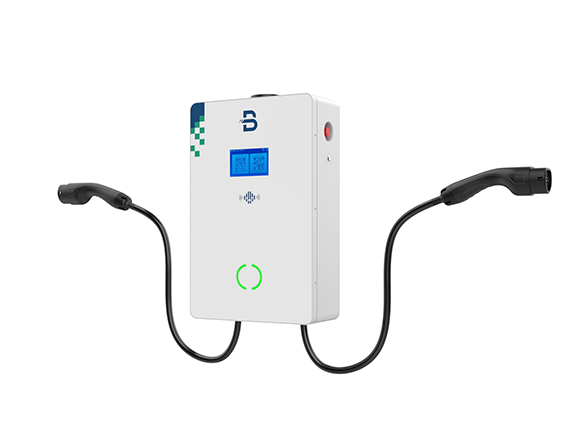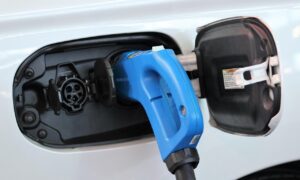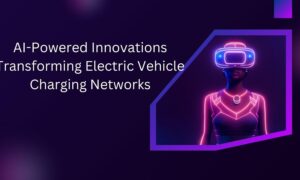With the increasing adoption of electric vehicle models on the market and the continuous expansion of EV charging stations, EV drivers and operators may feel confused about various charging levels and plug standards. Different charging levels, such as slow charging, fast charging, etc., and corresponding plug types often make users unsure of how to choose and may even affect charging efficiency or equipment safety due to misuse.
Are EV chargers universal? The short answer to this question is no. EV chargers come with different charging levels, capabilities, plug types, and regional standards. Let’s have a look at the types of EV chargers and different standards used in the industry, which will help you understand the EV charger’s universality.
Types of EV Chargers and Plugs
Electric vehicle chargers can be divided into AC and DC EV chargers, each with different plug standards in different regions.
1. AC EV Charger
AC chargers are commonly used for daily charging sessions, such as overnight at home or during extended parking periods.
- SAE J1772 is the most commonly used AC charging connector in North America, featuring a five-pin design, and is suitable for Level 1 (120V) and Level 2 (240V) charging. It is designed for single-phase AC charging.
- IEC 62196-2 is another AC EV charger type. This is the Type 2 plug, which is used across Europe and other regions. It accommodates both single-phase and three-phase AC charging, with a seven-pin design that allows for higher charging capacities.
2. DC EV Charger
DC fast chargers are engineered to deliver high-power DC electricity directly to the vehicle’s battery, which reduces charging times to a great extent.
- Combined Charging System (CCS) is a common electric car charging connector in this regard, which integrates AC and DC charging functions into a single inlet on the vehicle. The CCS1 used in North America is based on SAE J1772, while the CCS2 used in Europe is based on IEC 62196-2.
- CHAdeMO is another DC EV charger type, which is a fast charging standard developed by Japan. It facilitates high-power charging and supports bidirectional energy transfer.
- GB/T is China’s national standard for EV charging, which is divided into AC and DC charging types.
- Tesla’s North American Charging Standard (NACS) also supports both AC and DC charging through the same electric car charging port. This type of plug is now open to other manufacturers.
Now, you know the answer to the question, “Are all electric car chargers the same.” Almost every region of the world has a specific charger type being used there.
Why Aren’t Electric Car Chargers Universal?
Here are the top factors that affect the universality of the EV chargers:
1. Connector Standards
Electric car charging connectors vary by region and manufacturer, leading to a lack of universal compatibility. In North America, the SAE J1772 (Type 1) connector is standard for AC charging, while Europe predominantly uses the IEC 62196-2 (Type 2) connector.
For DC fast charging, the CCS charging stations are widely adopted, with CCS1 prevalent in North America and CCS2 in Europe. Japan utilizes the CHAdeMO standard, whereas China has implemented its own GB/T standard for both AC and DC charging. Additionally, Tesla has developed the NACS, which is being adopted by several automakers in North America.
These varying standards necessitate the use of appropriate electric car charging connectors or adapters to ensure compatibility between EVs and charging stations. This means that the answer to the query “Are EV chargers universal” is “no.”
2. Vehicle Compatibility
The compatibility between EVs and charging stations is also determined by the vehicle’s onboard charging system, which includes battery specifications, voltage levels, and supported charging protocols.
For instance, vehicles equipped with high-voltage DC charging can achieve faster charging speeds when connected to compatible high-power chargers. Conversely, EVs with lower voltage systems may experience slower charging rates, even when using the same charging station.
Therefore, it’s crucial for EV owners to understand the vehicle’s charging capabilities and ensure that the selected charging stations are compatible with their vehicle’s specifications. Charging point operators should also consider local mainstream charging plugs to invest in suitable charging stations. Since all EVs are different from each other, so the answer to the question “Are EV chargers universal” is also no.
3. EV Charging Power
Charging power is another key factor affecting the universality of chargers. The power range of the AC charging station is from 3.7 kW to 22 kW. The power range of the DC charging station is usually from 20kW to 600kW. Not all EVs can utilize the maximum power offered by high-capacity chargers due to limitations in their onboard charging systems.
Higher power requires higher specifications for electric vehicles themselves. Therefore, some electric vehicles support high-power DC fast charging, while others only support lower-power AC charging. This causes the answer to “Are EV chargers universal?” to be no.
Order Different EV Chargers
Given the complexities of EV charging, having access to the right equipment is essential. EVB Charger provides a comprehensive range of charging solutions that cater to different plug standards and power levels.
EVB Charger offers EV chargers with power ranging from 3.7 kW to 600 kW. They provide different charging speeds that are suitable for both home users and charging point operators.
Their EV chargers incorporate intelligent charging systems that optimize energy use, reduce electricity costs, and maintain battery health. With built-in smart monitoring and dynamic load balancing functions, users can track charging sessions, schedule charging times, and even integrate the system with renewable energy sources for sustainable operation.
Whether you want to invest in EV charging businesses in communities, parking lots, shopping malls, or workplaces, they can customize suitable solutions to meet your requirements.
Wrapping-Up
Are electric car chargers universal? Now, you have a clear answer. Charging cable for electric vehicles differ since different countries use different charging standards and the types of EVs of different brands also vary.
If you want to invest in EV charging station businesses, EVB Charger is a leading manufacturer in the EV charging industry. Its global presence ensures that users receive reliable customer support and access to the latest charging innovations. Contact them now to select the right solution for your business!






































